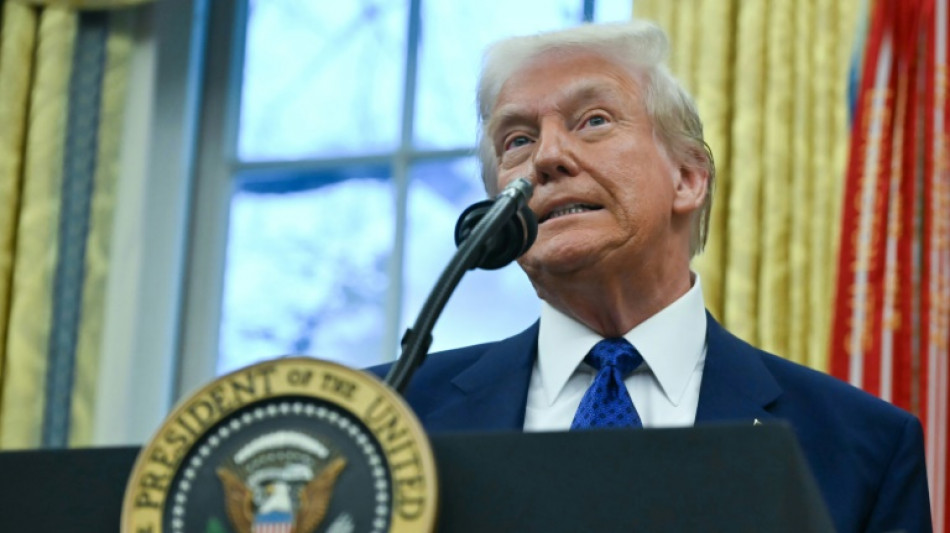
-
 Seahawks edge Rams in overtime thriller to seize NFC lead
Seahawks edge Rams in overtime thriller to seize NFC lead
-
Teenager Flagg leads Mavericks to upset of Pistons

-
 Australia's Head fires quickfire 68 as England's Ashes hopes fade
Australia's Head fires quickfire 68 as England's Ashes hopes fade
-
Conway falls for 227 as New Zealand declare at 575-8 in West Indies Test

-
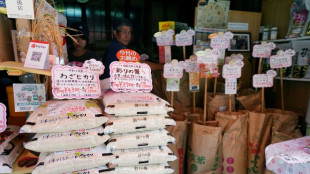 Japan hikes interest rates to 30-year-high
Japan hikes interest rates to 30-year-high
-
Brazil's top court strikes down law blocking Indigenous land claims
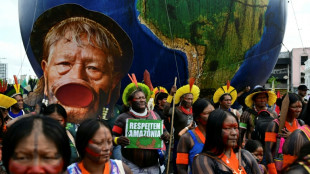
-
 Conway falls for 227 as New Zealand pass 500 in West Indies Test
Conway falls for 227 as New Zealand pass 500 in West Indies Test
-
'We are ghosts': Britain's migrant night workers

-
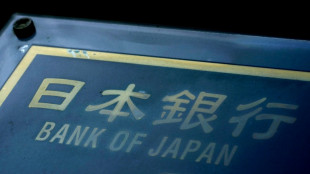 Asian markets rise as US inflation eases, Micron soothes tech fears
Asian markets rise as US inflation eases, Micron soothes tech fears
-
Giant lanterns light up Christmas in Catholic Philippines

-
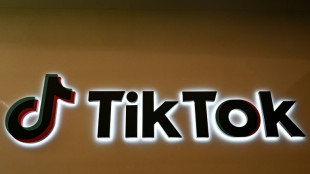 TikTok: key things to know
TikTok: key things to know
-
Putin, emboldened by Ukraine gains, to hold annual presser
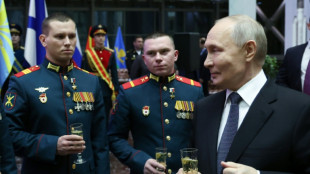
-
 Deportation fears spur US migrants to entrust guardianship of their children
Deportation fears spur US migrants to entrust guardianship of their children
-
Upstart gangsters shake Japan's yakuza

-
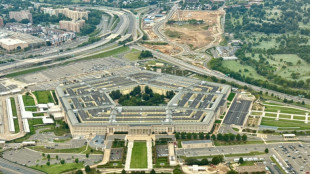 Trump signs $900 bn defense policy bill into law
Trump signs $900 bn defense policy bill into law
-
Stokes's 83 gives England hope as Australia lead by 102 in 3rd Test
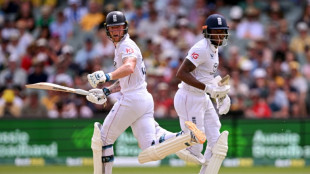
-
 Go long: the rise and rise of the NFL field goal
Go long: the rise and rise of the NFL field goal
-
Australia announces gun buyback, day of 'reflection' after Bondi shooting
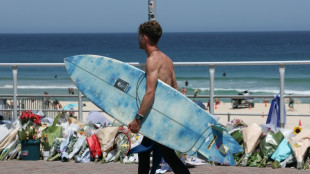
-
 New Zealand Cricket chief quits after split over new T20 league
New Zealand Cricket chief quits after split over new T20 league
-
England all out for 286, trail Australia by 85 in 3rd Test

-
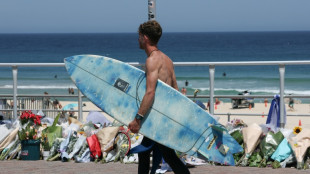 Australian announces gun buyback, day of 'reflection' after Bondi shooting
Australian announces gun buyback, day of 'reflection' after Bondi shooting
-
Joshua takes huge weight advantage into Paul fight

-
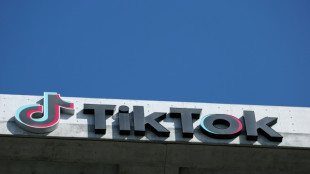 TikTok signs joint venture deal to end US ban threat
TikTok signs joint venture deal to end US ban threat
-
Conway's glorious 200 powers New Zealand to 424-3 against West Indies

-
 WNBA lockout looms closer after player vote authorizes strike
WNBA lockout looms closer after player vote authorizes strike
-
Honduras begins partial vote recount in Trump-dominated election

-
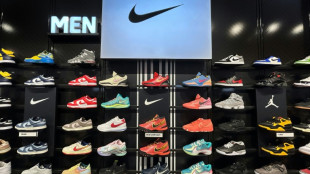 Nike shares slump as China struggles continue
Nike shares slump as China struggles continue
-
Hundreds swim, float at Bondi Beach to honour shooting victims

-
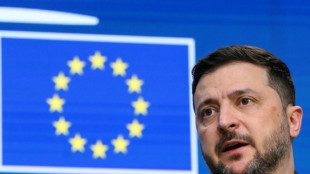 Crunch time for EU leaders on tapping Russian assets for Ukraine
Crunch time for EU leaders on tapping Russian assets for Ukraine
-
Pope replaces New York's pro-Trump Cardinal with pro-migrant Chicagoan
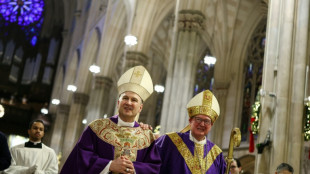
-
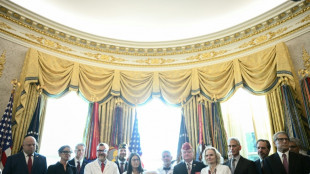 Trump orders marijuana reclassified as less dangerous drug
Trump orders marijuana reclassified as less dangerous drug
-
Rams ace Nacua apologizes over 'antisemitic' gesture furor

-
 McIlroy wins BBC sports personality award for 2025 heroics
McIlroy wins BBC sports personality award for 2025 heroics
-
Napoli beat Milan in Italian Super Cup semi-final

-
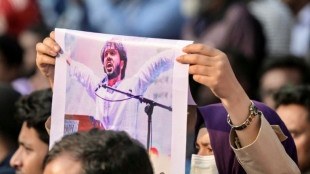 Violence erupts in Bangladesh after wounded youth leader dies
Violence erupts in Bangladesh after wounded youth leader dies
-
EU-Mercosur deal delayed as farmers stage Brussels show of force
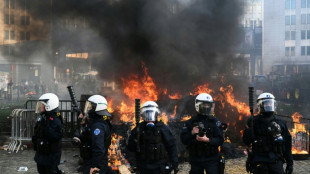
-
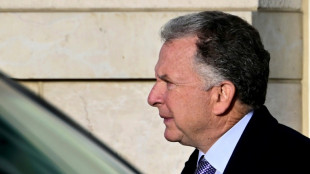 US hosting new Gaza talks to push next phase of deal
US hosting new Gaza talks to push next phase of deal
-
Chicago Bears mulling Indiana home over public funding standoff
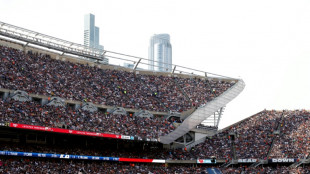
-
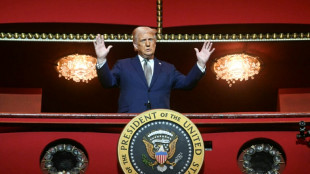 Trump renames Kennedy arts center after himself
Trump renames Kennedy arts center after himself
-
Trump rebrands housing supplement as $1,776 bonuses for US troops
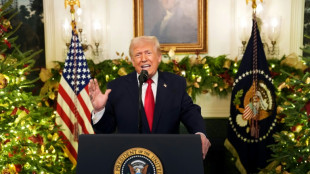
-
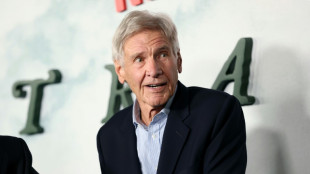 Harrison Ford to get lifetime acting award
Harrison Ford to get lifetime acting award
-
Trump health chief seeks to bar trans youth from gender-affirming care
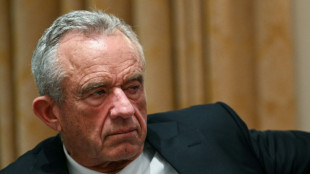
-
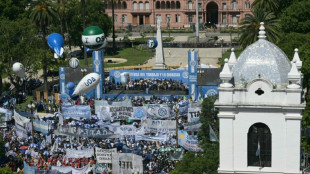 Argentine unions in the street over Milei labor reforms
Argentine unions in the street over Milei labor reforms
-
Trump signs order reclassifying marijuana as less dangerous

-
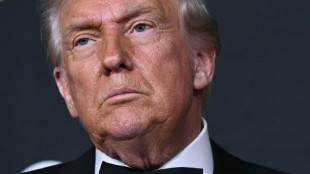 Famed Kennedy arts center to be renamed 'Trump-Kennedy Center'
Famed Kennedy arts center to be renamed 'Trump-Kennedy Center'
-
US accuses S.Africa of harassing US officials working with Afrikaners

-
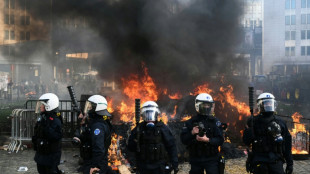 Brazil open to EU-Mercosur deal delay as farmers protest in Brussels
Brazil open to EU-Mercosur deal delay as farmers protest in Brussels
-
Wounded Bangladesh youth leader dies in Singapore hospital

-
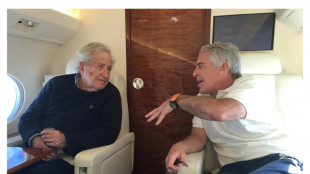 New photo dump fuels Capitol Hill push on Epstein files release
New photo dump fuels Capitol Hill push on Epstein files release
-
Brazil, Mexico seek to defuse US-Venezuela crisis
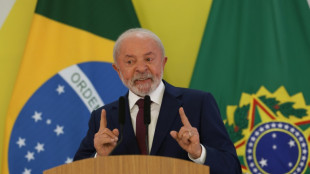

Trump launches 'reciprocal tariffs' targeting allies and adversaries
US President Donald Trump announced plans Thursday for sweeping "reciprocal tariffs" hitting both allies and competitors, in a dramatic escalation of an international trade war that economists warn could fuel inflation at home.
Speaking in the Oval Office, Trump said he had decided to impose the reciprocal duties, telling reporters that US allies were often "worse than our enemies" on trade issues.
The levies would be tailored to each US trading partner and consider factors including value added tax (VAT).
Trump has announced a broad range of tariffs targeting some of the biggest US trading partners since taking office, arguing that they would help tackle unfair practices -- and in some cases using the threats to influence policy.
The president has referred to tariffs as a way to raise revenue, remedy trade imbalances and pressure countries to act on US concerns.
Trump's announcement came hours before he was due to meet Indian Prime Minister Narendra Modi in Washington.
It remains unclear when exactly the tariffs would take effect, if imposed.
Analysts have warned that reciprocal duties could bring a broad tariff hike to emerging market economies such as India and Thailand, which tend to have higher effective tariff rates on US products.
Countries such as South Korea that have trade deals with Washington are less at risk from this move, analysts believe.
- Inflation concerns -
Cost-of-living pressures were a key issue in the November election that saw Trump sweep to power, and the Republican has promised to swiftly reduce prices.
But economists caution that sweeping tariffs on US imports would likely boost inflation, not reduce it, in the near term and could weigh on growth eventually.
Trump's nominee for commerce secretary Howard Lutnick, however, has pushed back on the idea that duties would cause widespread inflation, even as certain costs might rise.
Trump's deputy chief of staff for policy Stephen Miller previously said countries use the VAT to get an unfair trade advantage, although analysts have challenged this characterization.
During election campaigning, Trump promised: "An eye for an eye, a tariff for a tariff, same exact amount."
For example, if India imposes a 25-percent tariff on US autos, Washington will have a 25-percent tariff as well on imports of autos from India, explained a Nomura report this week.
The consideration of non-tariff factors might shift this calculus.
Modi will hold talks with Trump on Thursday and New Delhi offered some quick tariff concessions ahead of his visit, including on high-end motorcycles.
"Trump's objective of implementing reciprocal tariffs is to ensure fair treatment for US exports, which could indirectly also address US trade imbalances with partner countries," analysts at Nomura said.
Among Asian economies, India has a 9.5-percent weighted average effective tariff on US exports, while there is a three-percent rate on India's exports to the United States.
Thailand has a 6.2-percent rate and China a 7.1-percent rate on US products, Nomura noted.
Higher tariffs are often imposed by poorer countries, who use them as a tool for revenue and protection because they have fewer resources to impose non-tariff barriers, Cato Institute's Scott Lincicome earlier told AFP.
F.Müller--BTB
